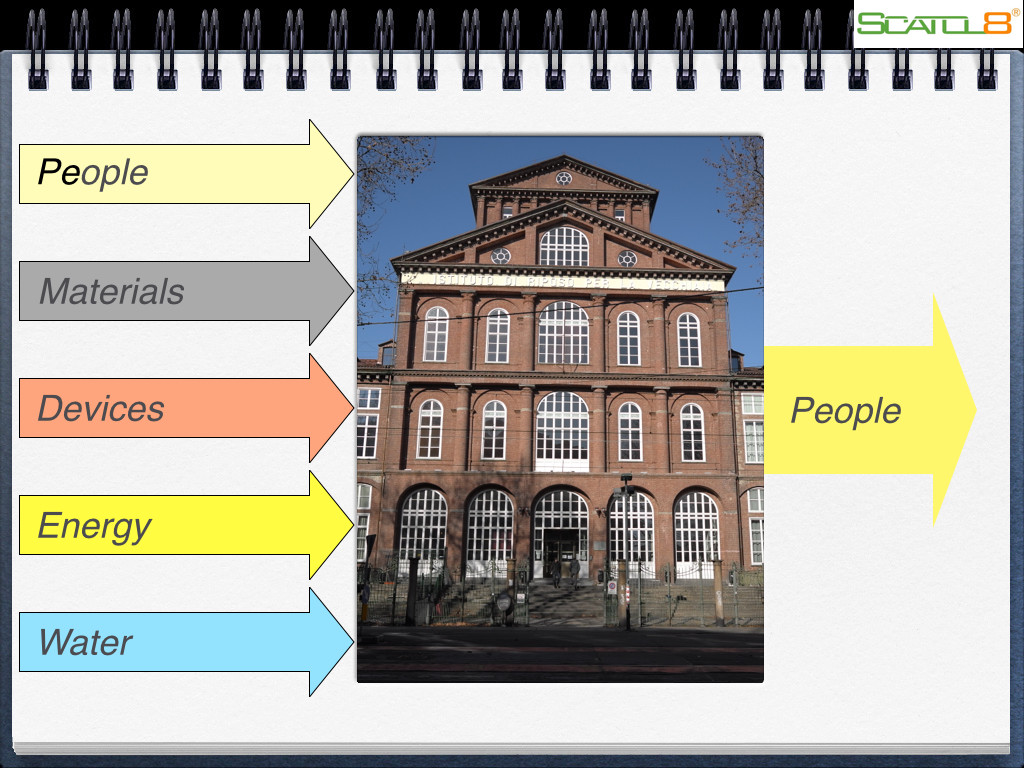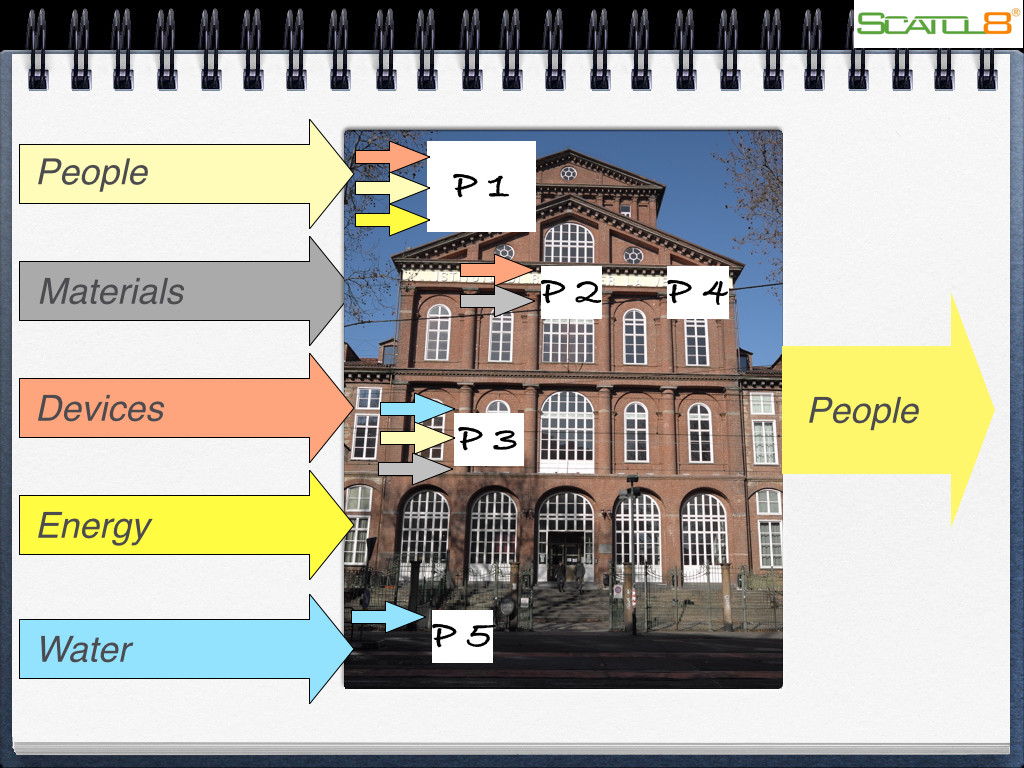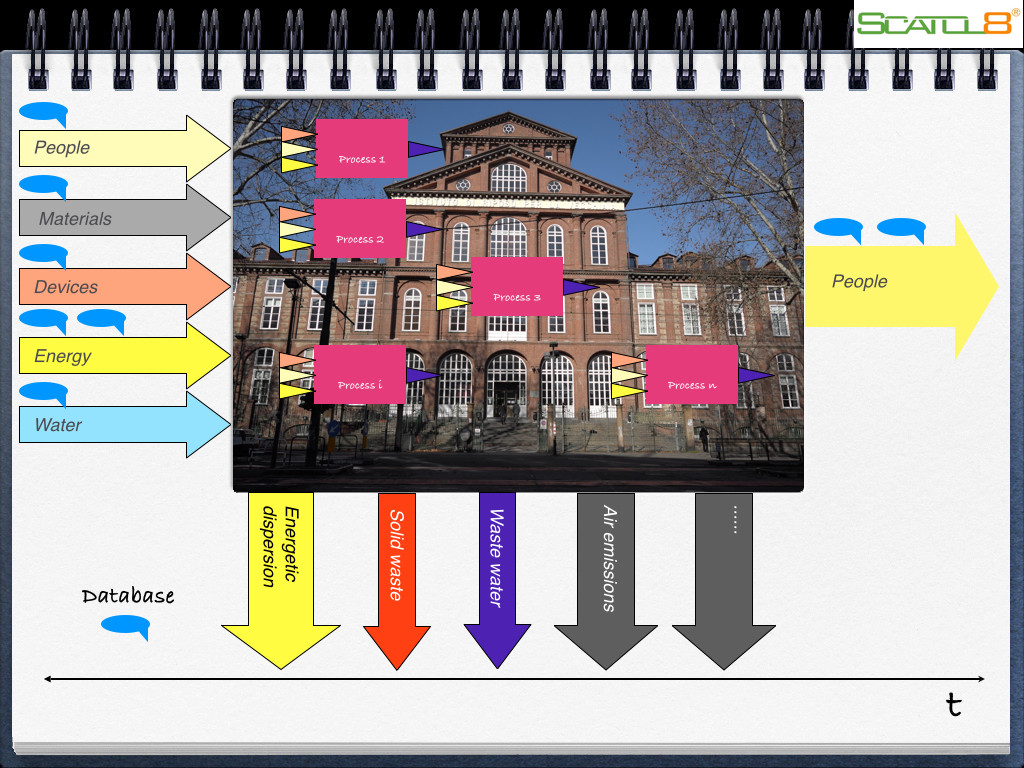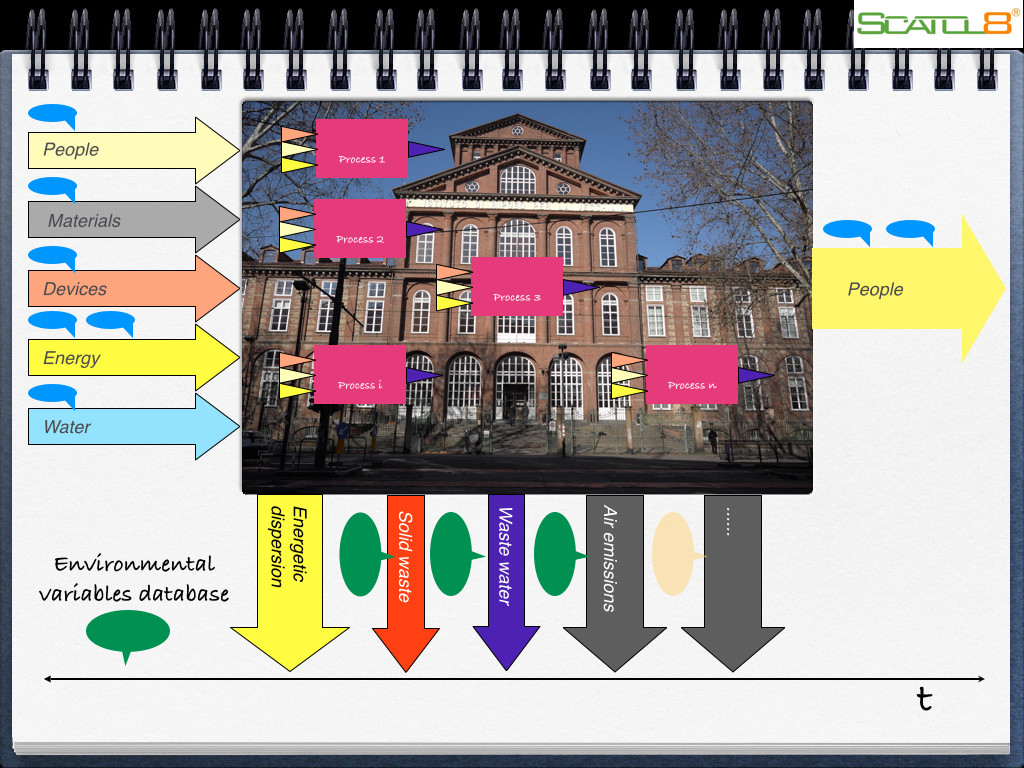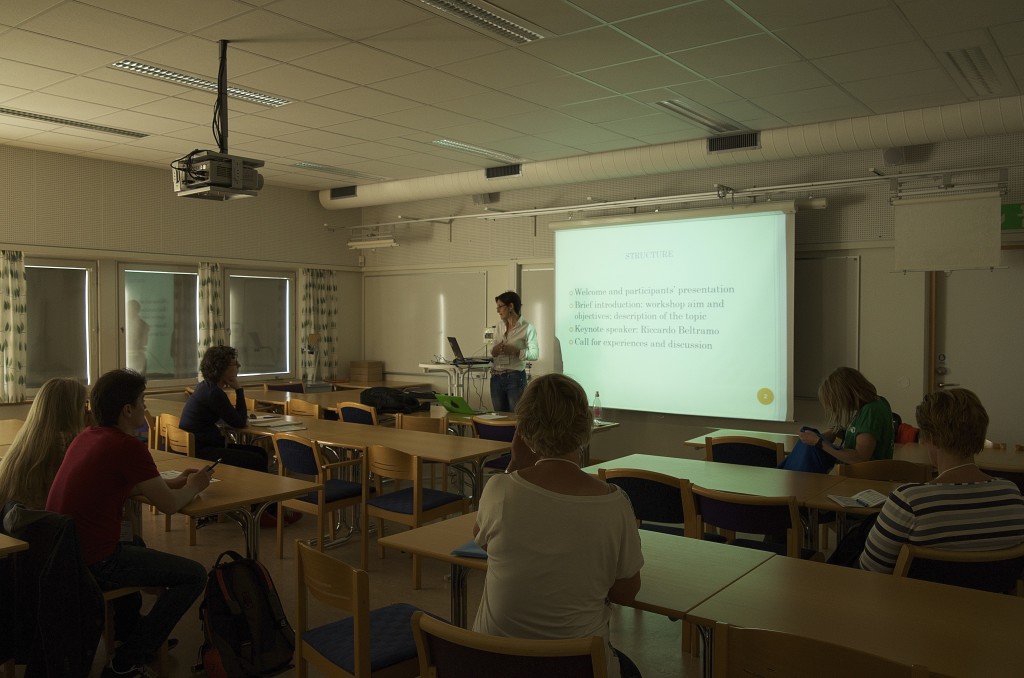 The issue of Sustainability is linked to the availability of natural resources for future generations and to the effects of changes brought about by economic activities, in terms of pollution, on environmental quality. These aspects are fundamental when investigating the conditions to ensure sustainability, with intra and intergenerational perspectives, through methods to track material and/or energy flows.
The issue of Sustainability is linked to the availability of natural resources for future generations and to the effects of changes brought about by economic activities, in terms of pollution, on environmental quality. These aspects are fundamental when investigating the conditions to ensure sustainability, with intra and intergenerational perspectives, through methods to track material and/or energy flows.
Inputs are aggregated into Processes (P1, P2, P3, Pn in the slides), which transformed them through Operations useful to bring about products or services.
Data related to inputs and outputs can be collected into databases and can be analyzed in order to evaluate trends or developing indicators of efficiency and effectiveness.
Processes and operations involve environmental transformations, in term of air, water, waste, soil and others pollution. Physical and chemical data can be collected into databases as well.
If they are related to inputs and outputs, it is possibile to define indicators of sustainability. The availability of data over time, let you study trends and implement or evaluate on a quantitative base the efficacy of implemented green strategies.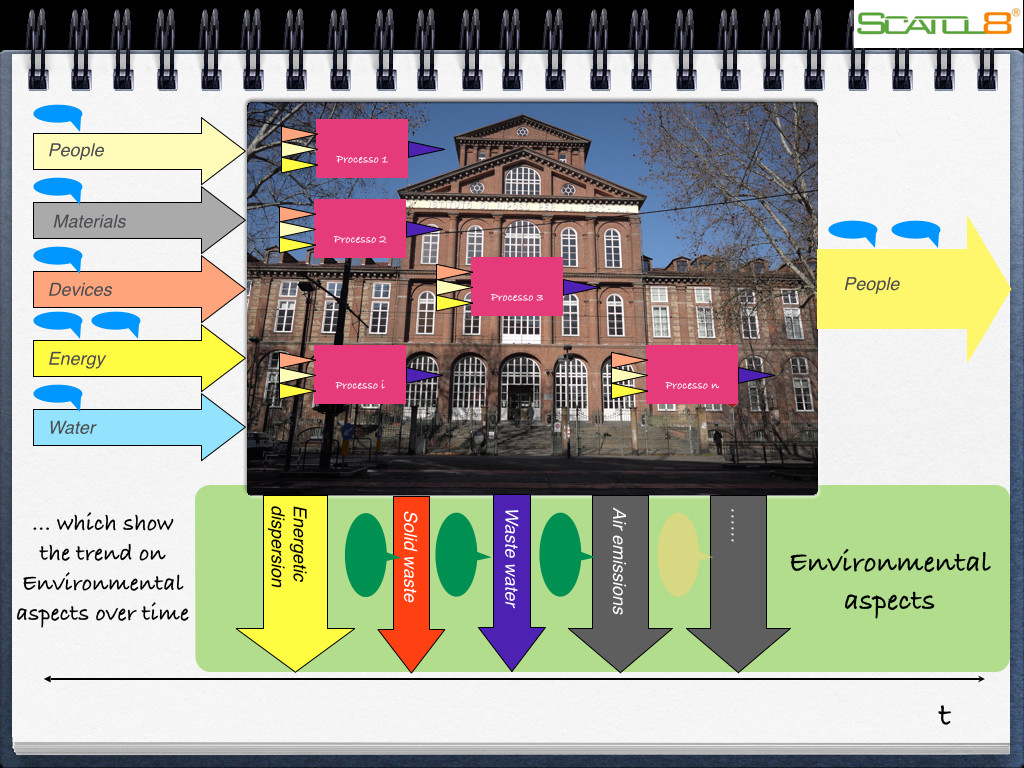
The quantitative approach is based on the availability of primary data, often poor and of uncertain quality. In addition, using data in aggregate form, there is the risk of not grasping the relationship between common daily activities and sustainability, neglecting an important dimension that is the contribution that each individual can give to sustainability. Conversely, if you have suitable tools and methods, such as Scatol8® system, to assess the impact of everyday activities, it is possible to reason on a quantitative basis for introducing changes in behavior, to make them more sustainable. In addition, starting from the physical data, we can produce reflections on the economic and social sustainability.
This approach must be addressed right through the school, with motivated teachers and through engaging educational proposals, instilling in students concepts that form the foundation of sustainability, in order to form individuals who incorporate this value in their decision-making models. The interactive didactics made possible thanks to Scatol8® can do a lot to attract young people to concepts that may appear abstract or too complicated.
Scatol8® is a system designed to arouse awareness on the theme of sustainable development; its mission: Spreading the culture of Sustainability Development; its vision: To Each His Own Scatol8®.
And, in the background, as highlight in “Scatol8®: A Path To Sustainability“, there is the Theory of Bio-economy, developed by Georgescu-Roegen, starting in 1970, based on the analysis of the economic system as an integral part of the environment, and therefore subject to the principles of physics and biology. 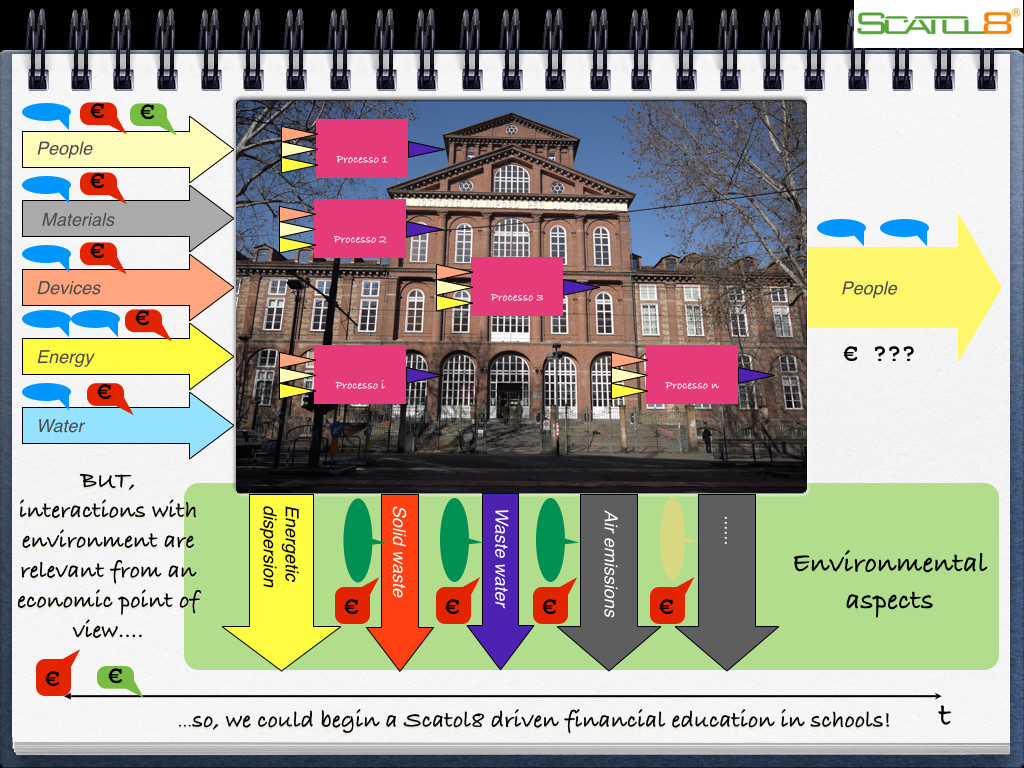
In brief, these aspect have been dealt by Riccardo Beltramo, in introducing Scatol8® to participants (coming from Brasil, Russia, Switzerland, Sweden and Italy) of the working group lead by Elena Pagliarino and Mario Salomone, on July 1st, at Gothenburg.

